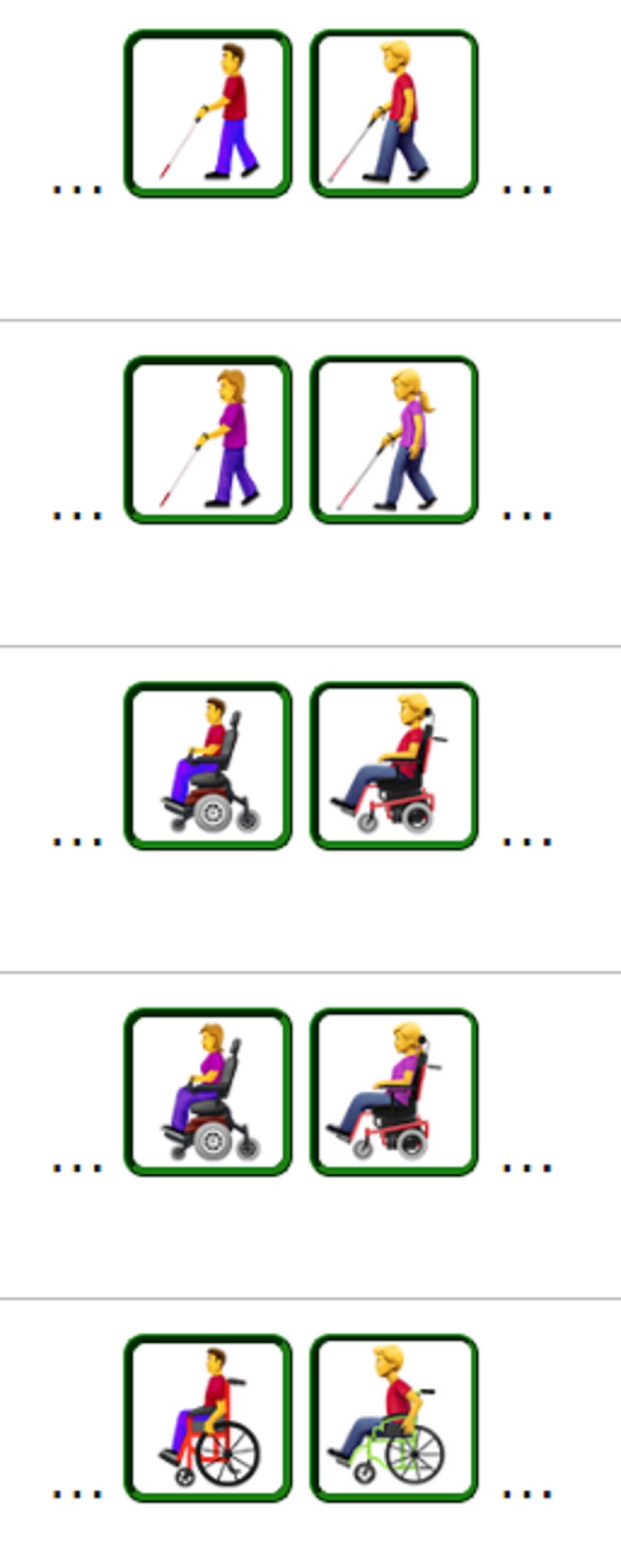Disability-themed emoji among latest designs approved for use
The update also includes a ‘drop of blood’ emoji campaigners say could provide women with a new way to talk about menstruation.

A range of disability-themed emoji has been confirmed as part of the next collection of the image-based characters, to be released later this year.
Icons showing hearing aids, wheelchairs, prosthetic limbs and guide dogs are among the latest set of approved images from the Unicode Consortium, the body which maintains and regulates the library of characters.
The introduction of characters themed around accessibility has been welcomed by disability rights campaigners.
Phil Talbot, head of communications at disability equality charity Scope, said: “Love them or hate them – emojis have become part of our everyday digital lives.
“Social media is hugely influential and it’s great to see these new disability-inclusive emojis. Up to now disability has been greatly under-represented.”
“We’d also like to see greater representation of disabled people and disability across all parts of the media and social media.”

Last year, Apple said it wanted to improve the representation of those with disabilities, submitting a number of designs to Unicode after consulting a number of campaigns and charities on the issue.
In total, 59 new characters are to be added to Unicode’s official library, which are expected to be released to the public in the second half of 2019.
The update also includes a number of new variations for gender and skin tones for the ‘people holding hands’ emoji, enabling users to create a wider range of mixed gender and ethnicity couples when using emoji.
The image-based characters are used by major tech firms including Apple, Samsung, Google and Microsoft across their range of devices and platforms.
The update also includes a new ‘drop of blood’ icon which Unicode suggests could be used by women to offer a new way to talk about menstruation.
It follows a campaign by girls’ rights charity Plan International UK to introduce a period-themed emoji.
Lucy Russell, head of girls’ rights and youth at the charity, said: “The inclusion of an emoji which can express what 800 million women around the world are experiencing every month is a huge step towards normalising periods and smashing the stigma which surrounds them.
“For years we’ve obsessively silenced and euphemised periods. As experts in girls’ rights, we know that this has a negative impact on girls; girls feel embarrassed to talk about their periods, they’re missing out, and they can suffer health implications as a consequence.”
“An emoji isn’t going to solve this, but it can help change the conversation. Ending the shame around periods begins with talking about it.”





